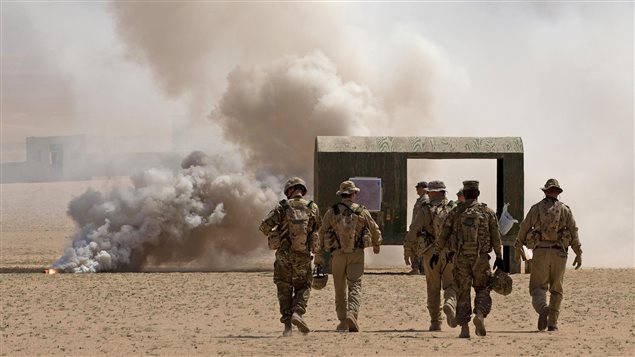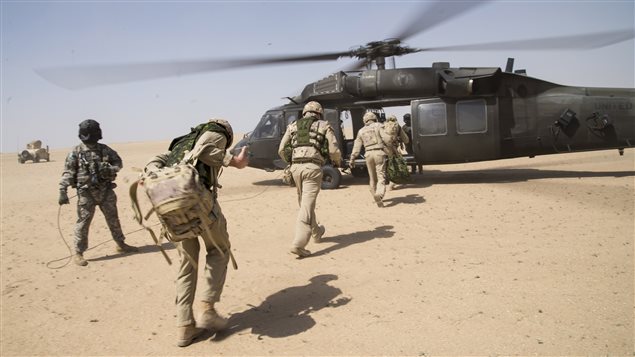The Liberal government’s decision to stop the bombing campaign in Iraq and Syria and focus on training Kurdish forces in Northern Iraq increases the risks for Canadian special forces stationed there, say Canadian defence experts.
Under the new plan, the number of elite Canadian commandos helping train Kurdish peshmerga fighters in northern Iraq will jump from 69 to about 230, bringing the total of Canadian soldiers deployed in the region to about 830.
“We will be involved in engagements as we defend ourselves or those partners who we are working with,” said Canada’s top soldier, Chief of Defence Staff Gen. Jonathan Vance, speaking at a technical briefing following Prime Minister Justin Trudeau’s press conference on Monday.
“We are not the principal combatants, we’re supporting those who are; we will be in proximity to the danger they are in proximity; we will be in a region that is contested and we will potentially suffer the challenges that such a region offers.”
Constant danger
Retired Lt.-Col. Steve Day, former commander of Canada’s elite anti-terrorism unit Joint Task Force 2 (JTF2) and president of Reticle Ventures, a security consultancy and training company, said Canadian special forces will be in a “very-very fluid battle space.”
(click to listen to the interview with Steve Day)
Listen“The danger is 360 degrees, 365 days of the year and you need to have the best trained, best equipped and best led Canadians on the ground to be able to be able to work in a very-very volatile, very complex environment,” Day said.
The environment that the Canadian soldiers in Iraq are facing is very much alike to what they faced in Afghanistan, Day said.
“When you’ve got an active insurgency going on in the host nation, there is nothing stopping a suicide bomber from walking up to a trainer and a trainee and wreaking havoc,” Day said. “It’s dangerous from that perspective. You’ve got a host nation that’s got an internal security challenge and that internal security challenge is around you all the time.”
Then of course there is the danger from the kind of training Canadian soldiers will be providing to the Kurdish forces.
Canadian special forces will continue basic level training, which they have already been doing since the end of 2014, he said.
Frontline training

But with additional trainers on the ground they will be able to move beyond just basic training to specialized training and more advanced training, Day said.
At the end of his briefing to reporters Gen. Vance admitted that Canadian soldiers will also be teaching their Kurdish protégés how to mark enemy targets for coalition strikes.
The very nature of that kind of training will require Canadian soldiers to be on the frontlines within the visual range of their targets, which means they themselves will be potentially vulnerable to all the dangers facing frontline soldiers, whether the Canadians actively engage in combat or not.
Given those dangers, he would have like to see more support for the Canadian soldiers on the ground, Day said.
“I would love to see a helicopter element that’s providing support to our men and women, I would like to have seen the CF-18s stay there,” Day said. “I must tell you having been (in a situation like that), there is nothing better than be able to pick up a radio and talk to a brother or sister from your own country when you’re in trouble somewhere.”
The Liberal announcement on the refocusing of the mission has left him with many unanswered questions, Day said.
“What is the endgame that we are trying to work towards? What are the political objectives? And what does success look like?” Day said. “We talk about two or three years where the government is currently committed. What do we expect to achieve in two to three years.”







For reasons beyond our control, and for an undetermined period of time, our comment section is now closed. However, our social networks remain open to your contributions.